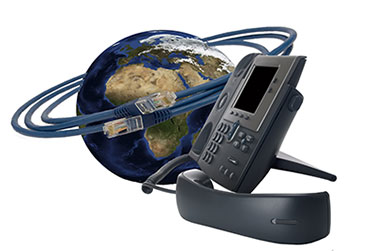Any business would want to communicate to its stakeholders as and when the need be. Businesses require the flexibility of accessing any internal office from anywhere in the world. Further, they even need functionalities that will enable them to transfer client calls internally or accept multiple calls simultaneously. There is only one solution to all the communication requirements of a business – A Business Phone System.
What is a Business Phone System?
The companies can manage their calls in a much more efficient way using a business phone system than a residential phone system. A business phone system uses multiple lines and multiple phones which are interconnected in a network. This allows better connectivity and lower congestion, among several other benefits.
Along with the basic call management features, nowadays, Business phone systems also provide unified communications that include phone, video, and chat forms of communication. This helps a business to work out of different geographical locations and also enhances the customer experience.
Business Phone Systems can be of three types – KSU, PBX, and VoIP. A business should be aware of which is most appropriate for its usage. Therefore, a basic understanding of each is necessary.
Key System Units (KSU)
The key system unit is the granddaddy of business phone systems. It provides the facilities for basic telecommunication requirements. Only very small businesses, with a maximum of 40 employees, go for this kind of system. The system has a limited number of phone lines built into it.
It is the closest a business phone system can come to the home telephone system. Even though it provides the basic call features, it lacks some very common features such as portability and flexibility. The most basic KSU manually determines the phone-line selection; however, with the advancement of technology, KSU-less systems have come up too. These are portable, flexible, and entirely wireless.
Even with the added capabilities, KSU-less systems are appropriate only for very small businesses and not for expanding or growing businesses.
Private Branch Exchange (PBX)
Once a business grows, it can’t function on the basic KSU and KSU-less systems. It has to go for a PBX, also known as the Private Branch Exchange System. As compared to the KSU, it has more features, including automatic routing of incoming calls.
PBX has an inbuilt power management system that enables the business to continue communication even during a power failure. It is an appropriate system for a company with more than 40 employees.
There is an economical variant of the PBX system, known as the hosted PBX. It has the main device – the programmable switching device installed on a telephone provider’s premises instead of that of the business. This reduces some installation and maintenance costs.
Voice over Internet Protocol (VoIP)
Finally, one of the most talked-about commercial phone systems is the Voice over Internet Protocol or VoIP. As of now, it is the most advanced business phone system. It enables communication across countries and also allows unified communications. As the name suggests, it uses the internet for communication.
As the technology is still new, VoIP is the most expensive commercial phone system. The cost varies by the number of employees communicating or needed to communicate. Therefore, businesses that want to save some costs opt for hosted VoIP. With VoIP, you can even learn how to setup VoIP at home.
Once you know which system is the best for your business, you may also want to delve deep into some salient features or the benefits of a business phone system.


